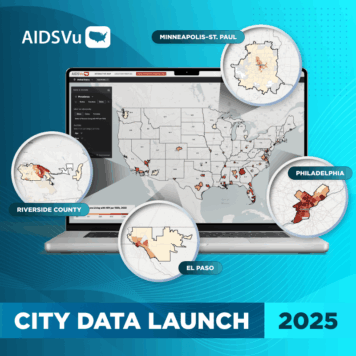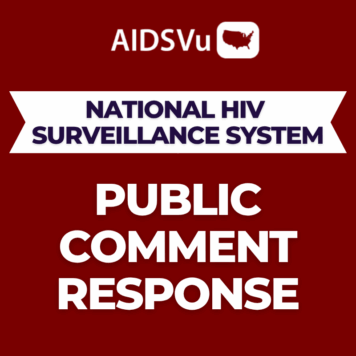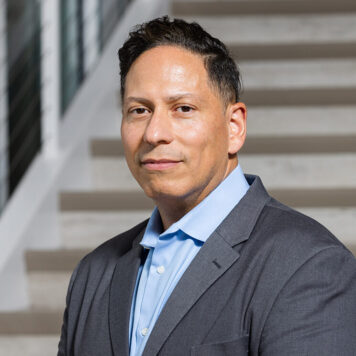Perry N. Halkitis, PhD, MS, MPH, is the Dean of the Rutgers School of Public Health, where he also serves as Hunterdon Professor pf Public Health & Health Equity, and Distinguished Professor of Biostatistics and Epidemiology. A leading public health psychologist, researcher, and advocate, his work focuses on the intersection of HIV, LGBTQ+ health, substance use, and public policy. Halkitis has been a vocal critic of health disparities and the politicization of public health, emphasizing evidence-based interventions to address infectious diseases. His forthcoming book, Humanizing Public Health: How Disease- centered Approaches Have Failed Us, to be published by Johns Hopkins University Press in 2026 explores the historical and contemporary challenges of public health through a socio-political lens.
Your research and advocacy work have long focused on the intersection of HIV, LGBTQ+ health, and public policy. What inspired you to explore the political dimensions of public health in Humanizing Public Health?
As with much of my research, the questions I ask, the hypotheses I develop, and the ideas I pursue stem from observing human behavior and public health systems in real time. In the late 1990s, I witnessed the rise of methamphetamine use among gay men, prompting a series of studies that culminated in a broader understanding of substance use in this population. In the early 2000s, I turned my attention to aging among people living with HIV, which led to the publication of The AIDS Generation.
This newest book is a culmination of decades of work at the intersection of HIV research, public health psychology, and infectious disease—deeply informed not only by my professional training but by lived experience during both the HIV and COVID-19 pandemics. What became starkly apparent during COVID was the recurrence of mistakes from the early days of the AIDS crisis: a narrow biomedical focus on pathogens, devoid of meaningful engagement with the people most affected.
Public health must move beyond this disease-centered lens. Human beings are not purely rational actors; their health decisions are shaped by beliefs, emotions, politics, and empathy—or the absence of it. Humanizing Public Health argues that we must re-center public health on the people it serves. The book provides both a philosophical framework and practical guidance for adopting human-centered approaches, reminding us that if we are to truly serve the public, we must put the “public” back in public health.
In your book, you reference Harvard’s Center for HIV Law and Policy’s HIV criminalization maps. How do HIV criminalization laws contribute to HIV stigma, and what misconceptions do people have about these policies?
A core premise of the book is that human behavior—our beliefs, emotions, and actions—is shaped by the environments we inhabit. When societies adopt discriminatory laws and policies, they erode health by amplifying stigma, limiting rights, and fostering fear. This has been evident across multiple domains: whether in restricting reproductive rights, denying protections to LGBTQ+ individuals, or criminalizing health conditions like HIV.
HIV criminalization laws epitomize this problem. These policies claim to protect public health but instead deter individuals from getting tested, seeking care, or disclosing their status. The irony—and tragedy—is that most HIV transmissions occur from individuals who are unaware of their status, yet these laws target those who know and are managing their condition. They send the dangerous message that knowing your HIV status can make you legally vulnerable.
Moreover, these laws ignore the current scientific reality. With advances in antiretroviral treatment, we know that Undetectable = Untransmittable (U=U)—a person with a suppressed viral load poses no risk of transmitting the virus sexually. Criminalization laws, therefore, lack both scientific merit and public health value. They undermine our ability to reduce infections, foster stigma, and obstruct the very tools—testing, treatment, suppression—we need to end the epidemic. Policymakers must understand that these laws are not only outdated but actively harmful.
Marginalized communities often have a disproportionate level of contact with the justice system and HIV criminalization often impacts those communities the most. What public health strategies can be used to combat both legal and social stigma surrounding HIV, and how can public health professionals and policymakers work to dismantle these stigmas while improving health outcomes?
This question underscores the compounding effects of intersecting marginalized identities. Individuals who hold multiple minority statuses—such as being Black and gay, or undocumented and low-income—are subjected to layered forms of oppression that synergistically degrade their health and well-being.
The criminal justice system disproportionately targets people of color, and because of that, HIV criminalization laws are enforced in ways that mirror and exacerbate those racial inequities. These policies compound the burdens already carried by individuals most affected by the epidemic.
To combat this, we must first expose the structural stressors that undermine health. But we must also confront the deeper issue: the persistence of hate. Hatred—toward queer people, people of color, immigrants, and the poor—animates many of the policies that restrict health access. This is not hyperbole; it is the reality of our political landscape.
Public health strategies must therefore be multifaceted: advocating for evidence-based laws, engaging in community empowerment, providing culturally competent care, and most importantly, humanizing those whom society too often vilifies. Public health professionals must serve as truth-tellers and bridge-builders—naming hate where it exists, and offering a vision of equity where justice is the foundation of health.
The COVID-19 and HIV epidemics have revealed deep inequities in healthcare access and trust. What lessons from the HIV crisis should inform future public health responses?
The parallels between HIV and COVID-19 are sobering and instructive. Just as AIDS was neglected by the Reagan administration in its earliest days, long COVID is now being ignored by the federal government. Funding is drying up, research is being sidelined, and the ongoing burden of disease is being erased from public discourse—all while people continue to suffer.
We must be clear: COVID is not over. Just as HIV persists more than four decades after the first cases, COVID-19 will continue to affect us for years to come. Yet, too many Americans believe HIV is no longer a crisis—despite over 30,000 new infections annually—and this misperception will worsen under an administration that promotes policies of exclusion and denial.
The lessons from HIV are urgent and unmistakable. We must adopt an activist stance: demanding federal accountability, educating the public about emerging and persistent threats, and empowering communities to advocate for their health. This is the vision behind Defend Public Health, a grassroots movement committed to protecting public health from political erosion.
We cannot afford complacency. We must reawaken the fierce, unapologetic activism that defined the early HIV movement. Only by doing so can we confront the inequities that continue to plague our healthcare systems.
You were recently featured in a CNN article discussing funding cuts for HIV studies. What are the implications for these funding cuts, and why is funding so important for HIV research and other efforts to end the HIV epidemic?
Cuts to HIV research funding—and to science writ large—are a direct assault on public health. These reductions will not just hinder progress; they will actively make people sicker. When we defund programs that serve vulnerable populations, we strip them of care, dignity, and opportunity.
Specifically, HIV research cuts will lead to more infections, more untreated individuals, and more preventable deaths. People will forgo medication due to cost, avoid testing out of fear, and lose access to essential prevention tools like PrEP, as recently witnessed in Texas when a court ruled employers were not obligated to cover it.
The impact will be most severe among LGBTQ+ individuals, communities of color, and those living in poverty—but it will ripple across the entire population. Public health is interconnected. When one group is left behind, we all suffer.
This erosion is not only the product of a hostile presidential administration; it is abetted by a Supreme Court that continues to chip away at healthcare protections, as I recently wrote in an editorial for LGBT Health. If we allow science and equity to be defunded, we compromise the health of the nation—and betray the values of a just society.
Data-driven public health approaches are often challenged by political ideologies. How do you navigate these challenges, and what strategies can public health leaders use to advocate for science-based policies?
As Dean of a School of Public Health, I recognize that educating future leaders requires more than scientific training—it demands political fluency. At Rutgers, we’re committed to preparing our students to navigate today’s political terrain, equipping them with the skills to communicate evidence-based ideas to policymakers who may lack a grounding in public health.
But education alone is not enough. We must teach our students to engage with those who deny science, who resist vaccination, who mistrust institutions. Facts alone will not persuade them. We must speak to their beliefs, to their emotions, to their humanity.
Public health agencies must also build trust with the communities they serve. During COVID-19, many health departments made efforts to engage, but they were often unfamiliar faces to the public. Visibility, presence, and relationship-building are essential.
And we need courage. We must be unafraid to speak truth to power. We must demand seats at the table. We must confront political decisions that harm health—just as public health leaders did in the 1980s during the Reagan administration’s willful neglect of AIDS.
The future of public health will be politically fraught, but it is no time for silence or retreat. If we can humanize public health—change hearts—we can change minds. And only then will science and equity reclaim their rightful place in shaping the health of our nation.




